Whether or not you’ve received a rising household of succulents or an city jungle in your front room, there are many cat-friendly indoor vegetation so as to add to your assortment.
However…you realize what they are saying about cats and curiosity, says Dr. Marci L. Koski, licensed feline habits guide and founding father of Feline Conduct Options. Many houseplants have traits that felines are drawn to—particularly in the event that they’re bored. There’s filth to dig in, wavy leaves to nibble on, attractive smells, and even new tastes, she notes. That’s why it’s necessary to know which vegetation are protected for cats and that are poisonous earlier than you top off.
Right here’s every thing it is advisable to find out about cats and vegetation, together with whether or not or not frequent houseplants are protected and what to do in case your kitty falls sick.
Which Crops Are Secure for Cats? Poisonous and Unhazardous Houseplants
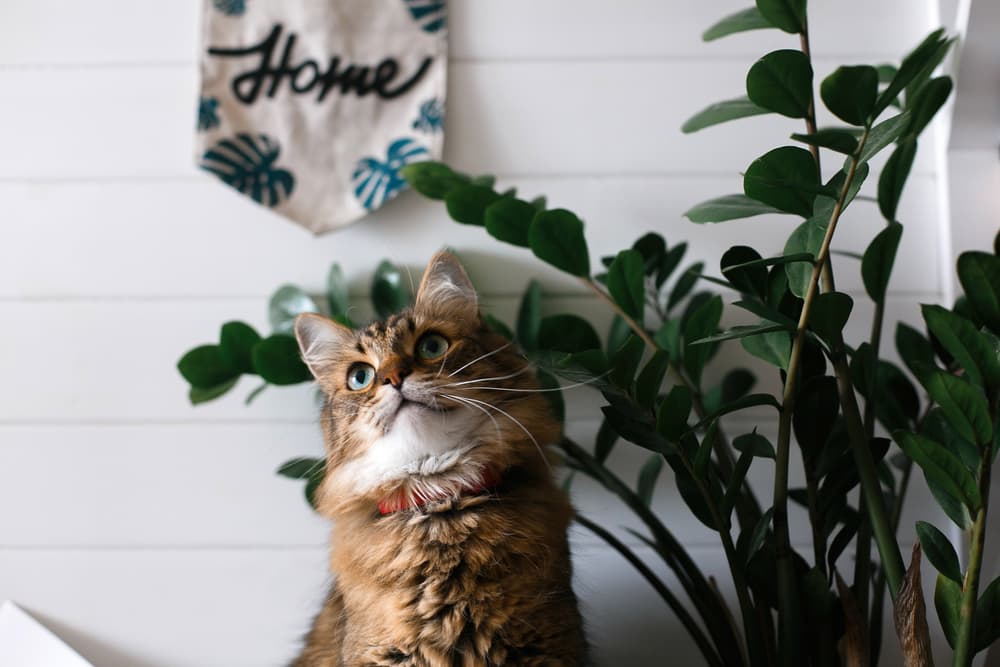
There’s a variety of vegetation that may be poisonous to cats. Frequent indicators of a attainable poisoning embody drooling, vomiting, diarrhea, lethargy, or modifications in urge for food, temper, or consuming or consuming habits, says Dr. Heather Graddy, lead veterinarian at Lakewood Veterinary Hospital in Colorado.
Whereas threat of significant sickness will be low from some vegetation if just one or two leaves are eaten, the hazard usually goes up the extra your cat has ingested, says Dr. Melanie Cohen, a veterinarian and founding father of Angel Pet Veterinary Hospice in Hampton Roads, Virginia. Moreover, sure forms of vegetation or flowers, like lilies, may also be quickly life-threatening even with a really minimal publicity.
Right here’s what it is advisable to find out about which vegetation are protected for cats.
Are Spider Crops Secure for Cats?
Sure, thankfully spider vegetation are protected for cats. Simple to look after and ever-propagating new mini-me’s, spider vegetation are a protected, non-toxic plant for cats.
“Because of the whimsical, ribbon-like nature of the leaves, cats are drawn to enjoying with and chewing on this plant,” says Brooke Blocker, a proud cat mother to a 17-year-old little girl and proprietor of Exterior In, a web based houseplant store.
Nevertheless, they’re undoubtedly not cat meals, so it’s finest to maintain your little ones away from them in the event that they’re liable to nibbling.
Are Snake Crops Secure for Cats?
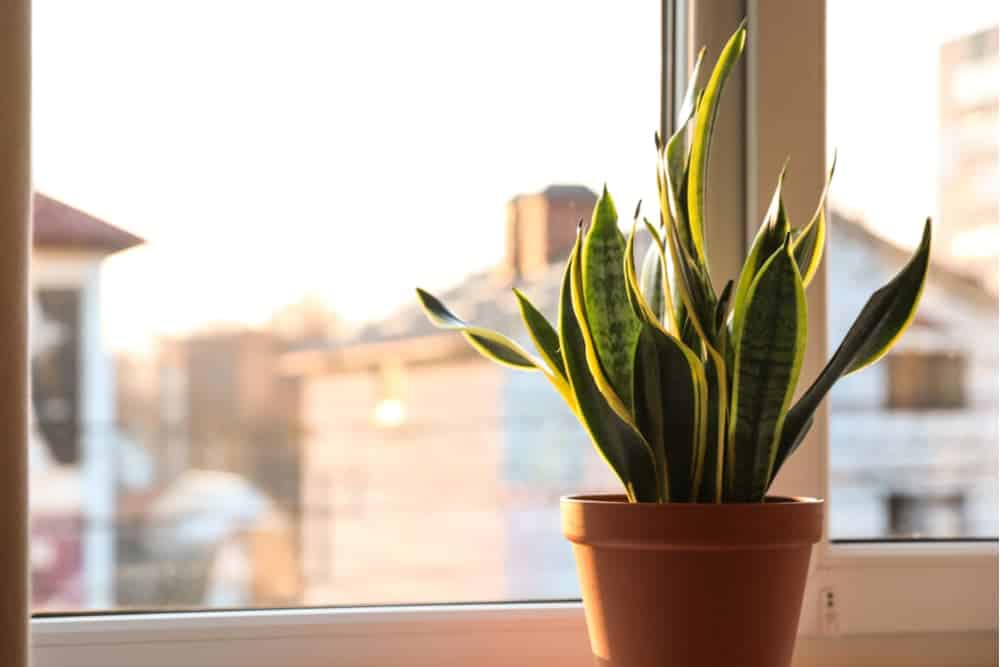
These spiky, shiny inexperienced vegetation are famously indestructible. However sadly, they’re not cat-friendly as a result of their saponins, pure compounds which might be poisonous to cats and canine alike and might trigger vomiting and diarrhea, notes Blocker.
Are Corn Crops Secure for Cats?
One other plant whose leaves include saponins, corn vegetation are on the ‘no’ record for cats since ingesting them may cause gastrointestinal misery, says Blocker. On the very least, you’ll need to hold their leaves out of attain.
Are Eucalyptus Crops Secure for Cats?
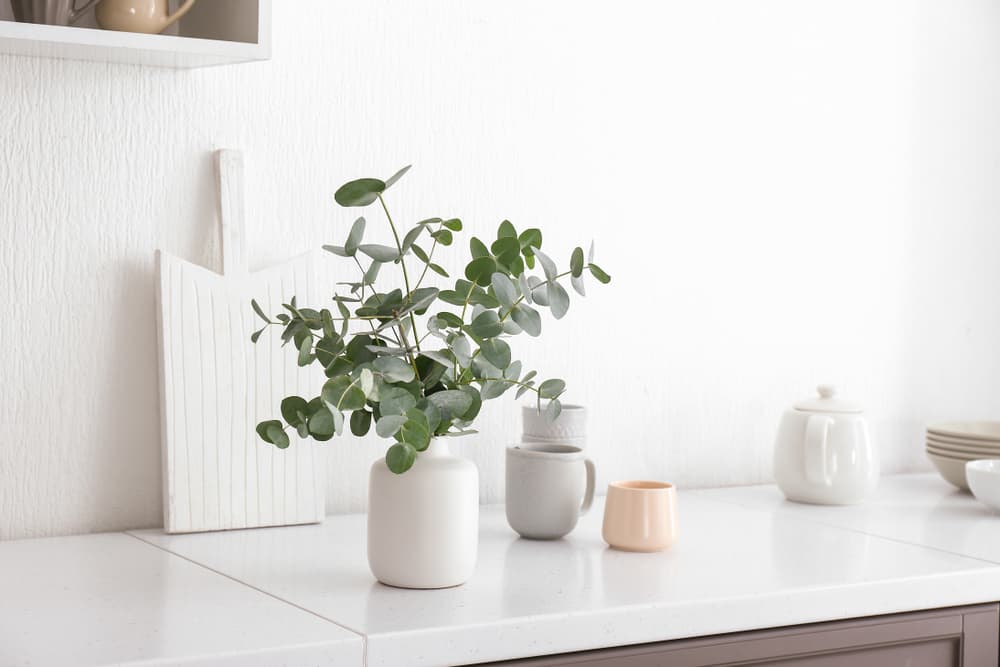
Whereas eucalyptus timber and their important oils are well-known for his or her therapeutic properties for people, they’re poisonous to felines. “Eucalyptus leaves include oils of eucalyptol which cats are unable to metabolize correctly when ingested,” explains Blocker.
Indicators of poisoning embody drooling, vomiting, diarrhea, low temper, and weak point, per the ASPCA.
Are Lavender Crops Secure for Cats?
Like eucalyptus, lavender can be off-limits to cats because it accommodates the oils linalool and linalyl acetate, that are poisonous to cats in addition to canine and horses.
Indicators of a kitty in misery embody nausea, vomiting, and lack of urge for food.
Are Aloe Crops Secure for Cats?
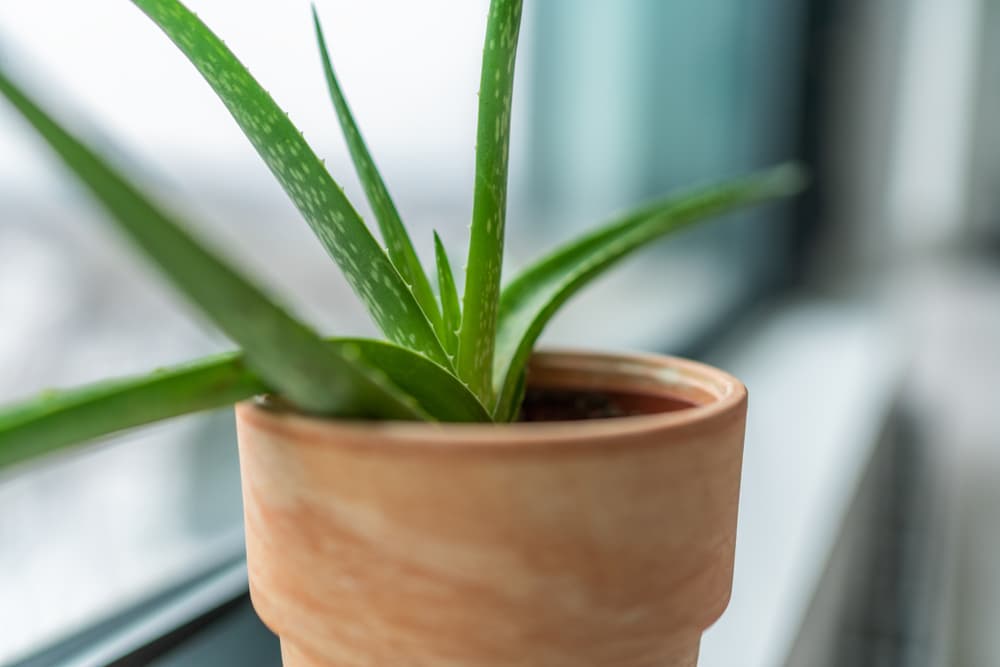
With a cooling gel that serves because the go-to house treatment for sunburn, aloe vera vegetation are one other good-for-you, bad-for-your-cat houseplant.
That’s due to their anthraquinones, substances that juice up the digestive tract, triggering vomiting and diarrhea in addition to low temper and, in uncommon circumstances, tremors in cats, per the Pet Poison Helpline (PPH).
Are Rubber Crops Secure for Cats?
Rubber vegetation resembling jade timber, child jade, and Chinese language and Japanese rubber vegetation are all poisonous to cats. Their sap can irritate a kitty’s pores and skin, mouth, and GI tract.
Indicators of bother embody pores and skin irritation, low urge for food, drooling, vomiting, and diarrhea, per the PPH.
Is Satan’s Ivy Secure for Cats?
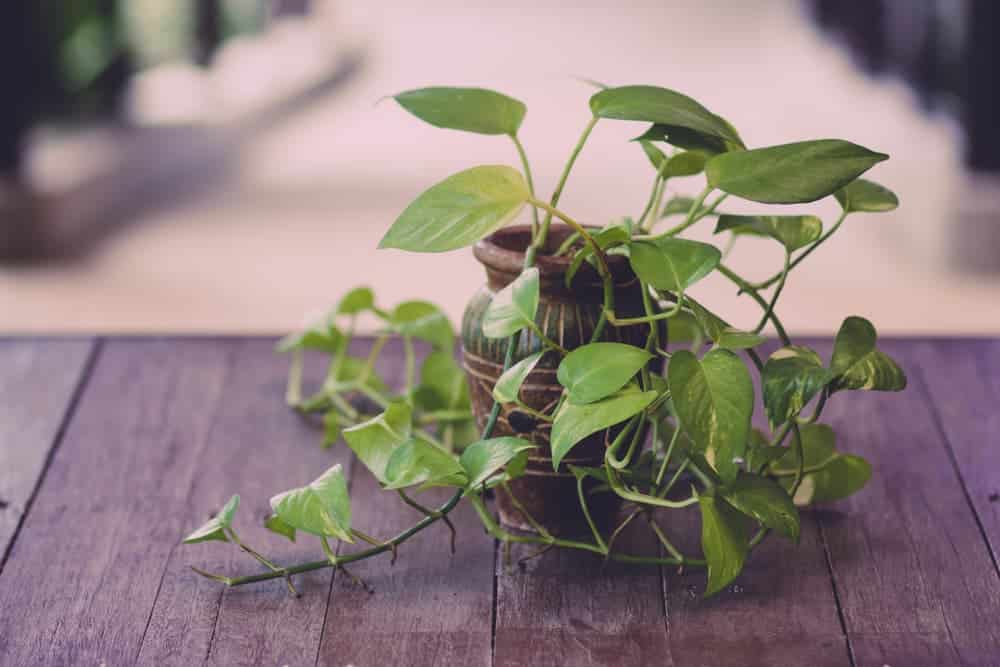
Nope. These fast-growing houseplants include calcium oxalate crystals, a toxic-to-cats substance that may trigger extreme drooling, pawing on the mouth as a result of ache and irritation, and vomiting, says Dr. Cohen.
Are Monstera Crops Secure for Cats?
With their attractive leaves and gorgeous top, Monstera vegetation are a staple of Instagram-worthy areas, however in addition they don’t get alongside properly with cats as a result of calcium oxalate crystals.
Are Prayer Crops Secure for Cats?
Sure! For those who nonetheless need a leafy, tropical look, snag some prayer vegetation that are non-toxic to cats. “Fortunately, there are numerous sorts of prayer vegetation obtainable, so you may loosen up and cargo up on this household of feline-friendly vegetation,” says Blocker.
Houseplants Toxic to Cats
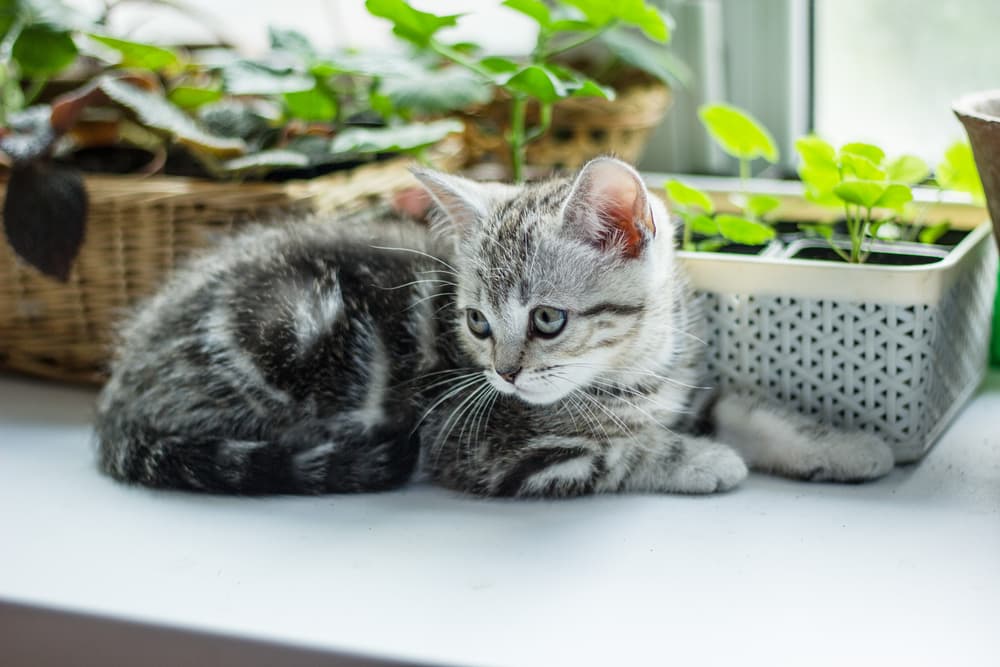
Moreover people who have already been talked about, there are a handful of different vegetation poisonous to cats.
Arms down, essentially the most poisonous plant discovered in lots of properties is the lily. In truth, Dr. Cohen says she refuses to permit any kind of lily in her house as a result of even the pollen or water within the vase or pot might make cats critically sick.
True lilies—Asiatic, Day, Tiger, Easter, Japanese, and Oriental—may cause extreme kidney injury. “Imposter” lilies like Calla, Peace, Water, and Peruvian lilies aren’t as harmful, however they’ll nonetheless trigger mouth, throat, and GI irritation, notes Dr. Cohen.
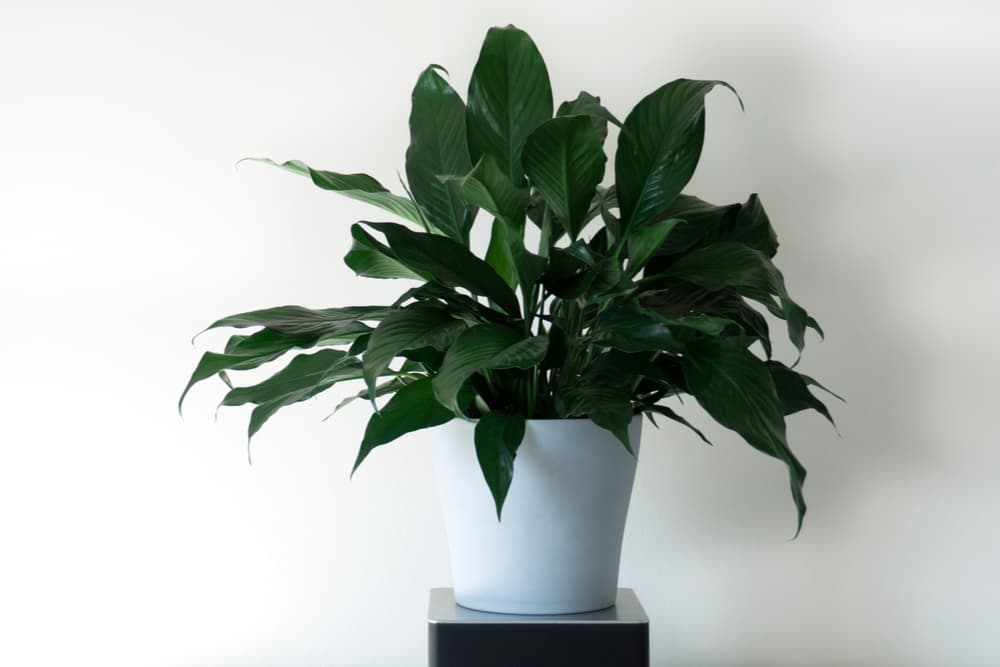
For those who suspect your cat might have gotten into your lilies, search veterinary assist instantly.
The next houseplants are additionally poisonous to cats:
- Alocasia
- Amaryllis
- American and English Holly
- Asparagus Fern
- Autumn crocus
- Azalea or rhododendron
- Begonia
- Chrysanthemum
- Cyclamen
- Dieffenbachia
- Kalanchoe
- Oleander
- Peace lily
- Pothos
- Sago palm
- Schefflera
- Tulip and Hyacinth bulbs
- Yew
Questioning about one other kind of houseplant? Use the ASPCA Animal Poison Management Middle search device to seek out out if it’s okay to have round kitties.
Crops Secure for Cats
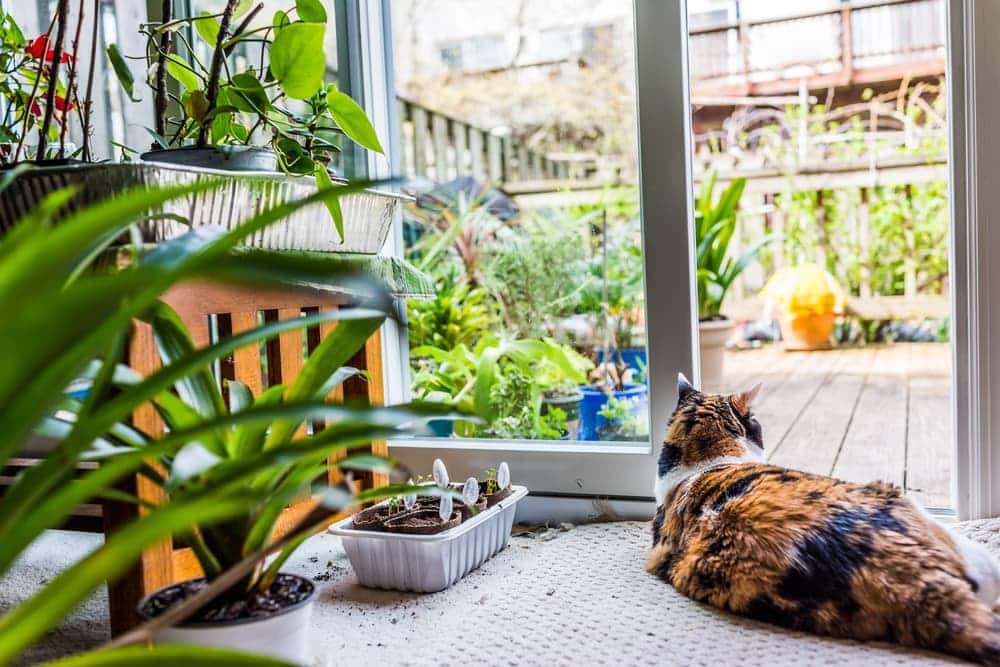
Though some vegetation could be finest omitted of your cart, there are many others which might be cat-friendly.
“I like to recommend Peperomia vegetation to everybody who has a cat,” says Blocker. “There are such a lot of completely different varieties that there’s all the time one that may swimsuit any private plant choice.”
Right here’s a collection of different cat-safe vegetation:
- African Violet
- Child Tears
- Hen’s Nest Fern
- Boston Fern
- Bromeliad
- Butterfly Palm
- Calathea Orbifolia
- Friendship Plant
- Hoya
- Orchid
- Parlor Palm
- Polka Dot Plant
- Ponytail Palm
- Staghorn Fern
- Swedish Ivy
- Some succulents resembling Echeveria and Haworthia
- Venus Flytrap
Cats and Crops: Security Tricks to Observe
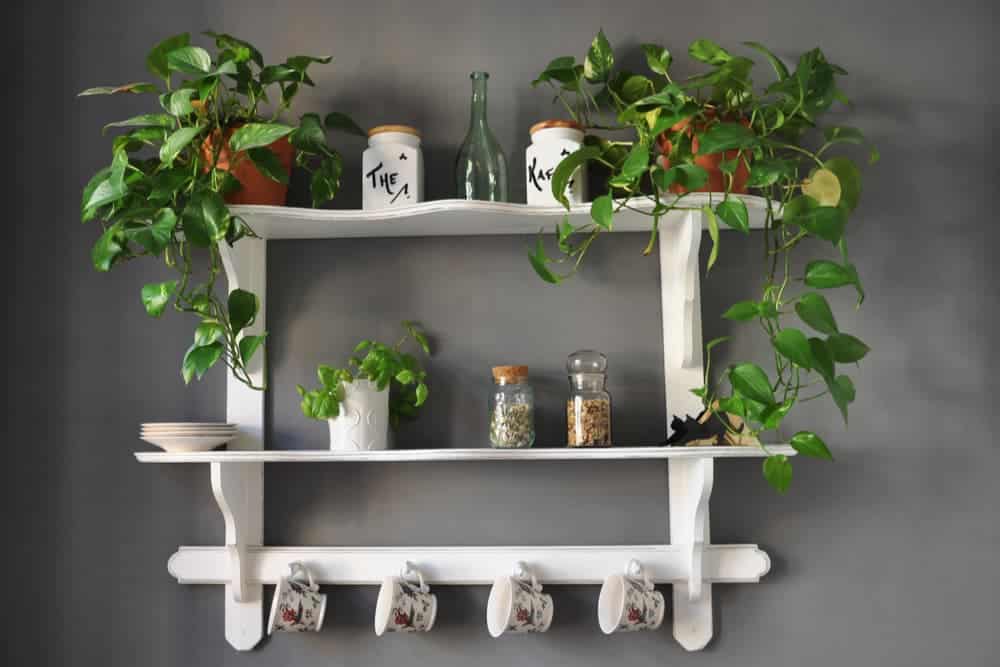
So, how can your cats and vegetation peacefully (and safely) coexist? “When unsure, hold poisonous vegetation out,” says Dr. Koski. Once more, a no-entry rule for lilies is finest since they’re particularly poisonous for cats.
In any other case, suppose like a cat and take into account your pets’ distinct personalities as you prepare houseplants in your area. Excessive cabinets, terrariums or empty fish tanks, and even chook cages might help hold vegetation and cats separate, says Dr. Koski.
Nevertheless, in case you’ve received a jumper, digger, or muncher, reserve a cat-free room for poisonous vegetation or depart them out of your house fully. Needless to say some vegetation like cacti are additionally finest stored out of attain since they’ll injure little paws, says Dr. Graddy. Lastly, keep in mind the indicators of a attainable poisoning, resembling drooling, vomiting, diarrhea, and out-of-the-ordinary modifications in habits. Simply in case, hold the numbers for the ASPCA’s Animal Poison Management Middle (1-888-426-4435) and the Pet Poison Helpline (1-855-764-7661) useful. Whereas there are charges related to these providers, it’s a small value to pay to verify your kitty’s protected, says Koski.
